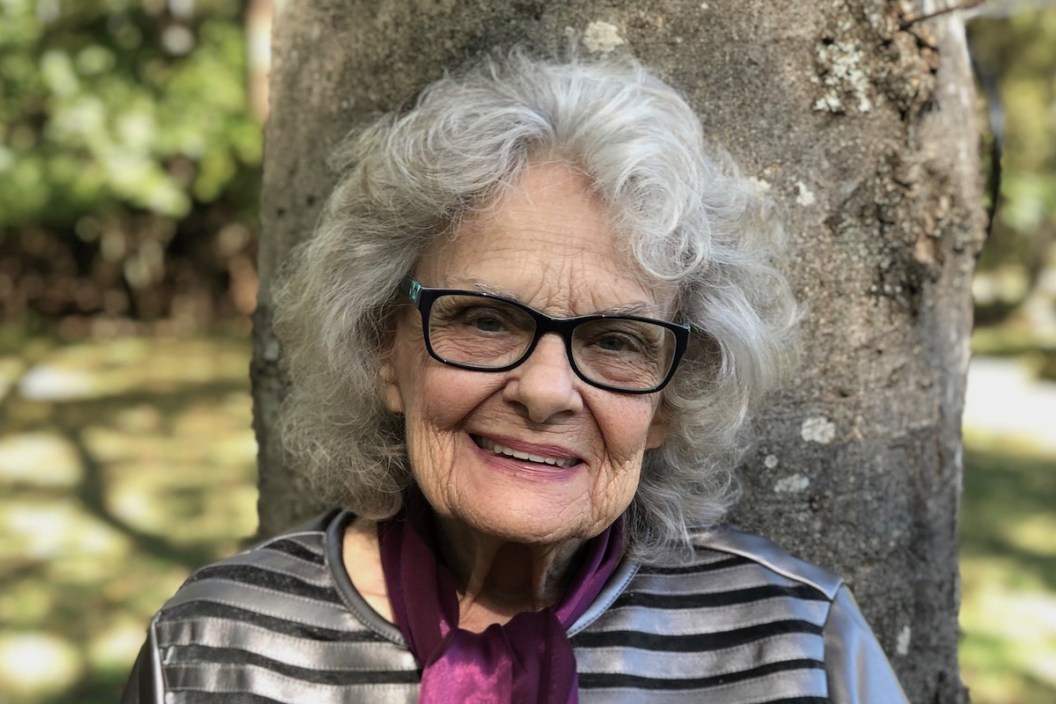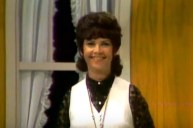From her late '50s singles for Starday Records to her 2020 EP Never Mind, Margie Singleton's shared her God-given gifts as a country singer and songwriter. Along the way, those talents have elevated not just her career but also those of George Jones, Tammy Wynette, Charley Pride and other country music greats.
Born Margaret Louise Ebey on Oct. 12, 1935 in Coushatta, La., she married future Mercury Records A&R staffer, producer and executive Shelby Singleton when she was only 13. Margie started focusing on singing and songwriting a year later, following the birth of her first son, Steve.
By the late '50s, she was on the fast-track to stardom behind such early career hits as "Nothing but True Love" and "Eyes of Love."
"The song 'Never Mind' is kind of autobiographical, in the sense that it tells of my leaving home to go on the road and my journey from the Louisiana Hayride to Nashville, Tn. and the Ryman Auditorium, singing my song 'Old Records,'" Margie says.
She made history in 1962 when she became the first woman to record a collaborative album with Jones. Although "Waltz of the Angels" and "Did I Ever Tell You" were the hits off Duets Country Style, Margie and the Possum's version of the often-recorded "Looking Back to See" ranks high among the hidden gems in both artists' catalogs.
Margie's only Top 5 country hit, the 1964 Faron Young collaboration "Keeping Up with the Joneses," built off her proven track record as a duet partner. Her musical partnership with Young netted two more Top 40 country singles: "No Thanks, I Just Had One" and "Another Woman's Man, Another Man's Woman."
Yet Margie's most compelling story from the first half of the '60s doesn't involve hobnobbing with country music tastemakers. In that same time frame, the Singleton family hosted Black artists with limited lodging options whenever Shelby invited them to Nashville to handle business.
"I had friends come here to stay because there was no place in town that was decent," Margie recalls. "The good hotels didn't allow it, which is so stupid. You know, we're all God's children, and I never have had that prejudice, thank God. There was one hotel (allowing Black guests) and it was terrible. Clyde McPhatter, Brook Benton, Damita Jo... All those artists stayed out here at my place, and I'm still living in that place. There's a lot of history in my house, in the music room downstairs where people would come in and we'd have a writing session all weekend."
Margie's kindness to Benton came with zero selfish motives, yet it paid off in 1962 when he took her song "Lie to Me" to the R&B charts' Top 5.
As would happen with Margie's songs, it just happened to fit the needs of a friend searching for a hit.
"I never really wrote for a particular person. I just wrote," she says. "That's what I've always loved to do. If I had something, like with Tammy (Wynette), Billy (Sherrill, her producer) would hear it and take it to her. Back then, it was easier to get to an artist than it is today. We were a closer-knit family, a music family, here at the time."
Read More: Leroy Van Dyke on His Two Career-Defining Hits, 'The Auctioneer' and 'Walk On By'
Songs written by Margie got cut over the years by Wynette ("Enough of a Woman," "What's a Little Rain"), Pride ("Silence"), Dave Dudley ("Don't Be Surprised") and Johnny Tillotson (his pop hit "She Understands Me"). In addition, "Laura (What's He Got That I Ain't Got)" became a No. 1 country hit in 1967 for Margie's co-writer and second husband, Leon Ashley, before entering the repertoires of Claude King, Marty Robbins and Kenny Rogers.
Margie's musical relationship with Leon and his Ashley Records imprint also brought us the duets "Hangin' On" and "You'll Never Be Lonely Again" plus the BMI award-winning co-write "Mental Journey."
Despite her success throughout the '60s, a big what-if looms over Margie's story. She first recorded "Harper Valley P.T.A.," yet it became a definitive crossover pop hit for Jeannie C. Riley, an artist signed to her ex-husband Shelby's Plantation Records.
"It was written by Tom T. Hall for me to follow up 'Ode to Billie Joe,' which I had a hit on country radio," Margie says. "Bobbie Gentry wrote ('Ode to Billie Joe'), and she had the record on pop (radio), but the country stations weren't playing it. So we put it out, and it did quite well. It got in the Top 40 for me, but of course hers was a big No. 1 record in pop.
"I recorded 'Harper Valley,' and (Ashley) and I had a European tour," she continues. "At that time 'Ode to Billie Joe' was still up in the charts. You don't release a song until that one comes down. We were going to release 'Harper Valley PTA' when we got back, and we heard Jeannie C. Riley's record of it as we were coming from the airport. My former husband had had her on Plantation Records, and he had gotten ahold of it and recorded Jeannie on it. She didn't even realize that I had cut it. We recently became friends on Facebook, and she sent me a message that she really appreciated me doing the demo for her million-seller."
Margie's faith helped her cope with how the "Harper Valley PTA" situation panned out.
"I was angry and really mad for a while, but you can't unscramble eggs and it was already gone," she says. "God didn't want me to have that, and I'm where I am today by the grace of God."
Nowadays, Margie works out of her home studio with her son Steve, a veteran songwriter and former operation manager for Monument Records. Steve's successes date back to the '60s, when he got credited for two songs on Riley's Harper Valley PTA album ("No Brass Band" and "Shed Me No Tears") and one on the album Margie Singleton's Harper Valley PTA ("The Little Girl I Didn't Have the Courage to Keep").
"My husband passed away in 2013, and I just didn't figure I wanted to sing anymore," Margie says of her career resurgence. "But the Lord gave me the music, and I've always had a fire for it. I came back and did a gospel album called 'On the Other Side of Life' in 2016. It was written about his passing. All of the songs on there I wrote except for one."
Other recent recordings range from a new version of the Benton hit "Lie to Me" to the light-hearted "Lost in Cyberspace," which jokes about her generation's struggles with technology.
"In one of the lines of it, it says I thought a hashtag was hash browns," Margie says. "I went into the Waffle House and and ordered a hashtag smothered, covered and chunked, and they threw me out!"
For more information about Margie's ongoing career, visit www.margiesingletonmusic.com.
Now Watch: The Grand Ole Opry's Back on Television
[sweeps]




